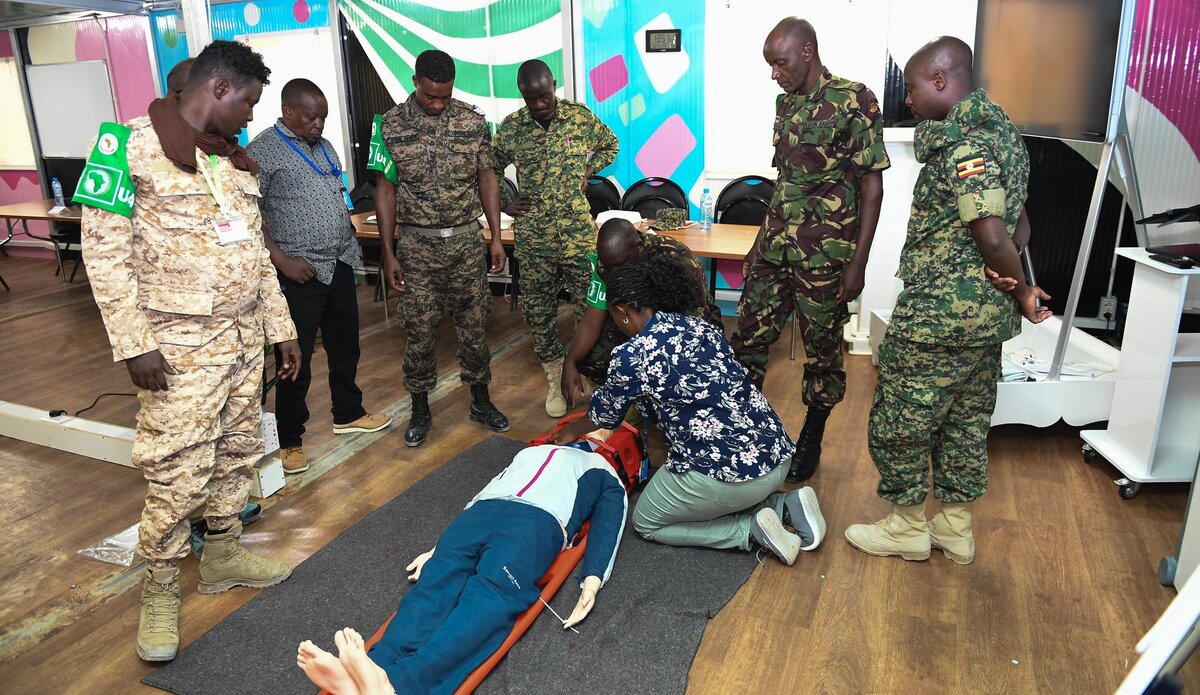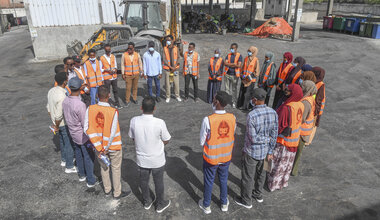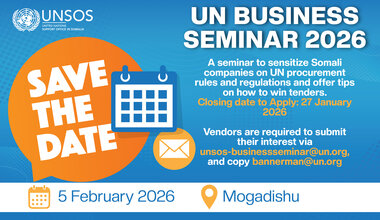UNSOS trains key ATMIS and SNA medical staff on how to best handle casualties of conflict
Mogadishu - Timely evacuation is critical in any conflict environment. Often, they determine whether an injured soldier on the battlefield survives or succumbs to his or her injuries.
For this reason, the United Nations Support Office in Somalia (UNSOS) organised a weeklong training for 29 healthcare personnel from the African Union Transition Mission in Somalia (ATMIS), UNSOS and the Somali National Army (SNA).
“This training will enhance the ability of our healthcare personnel to provide robust medical support to troops engaged in operations, improve the quality of the management of casualties and decrease mortality in the current context of increased tempo of operations resulting in significant increase of the number and severity of casualties in the Mission,” said Lamin Fatty Chief Human Resource Officer, UNSOS.
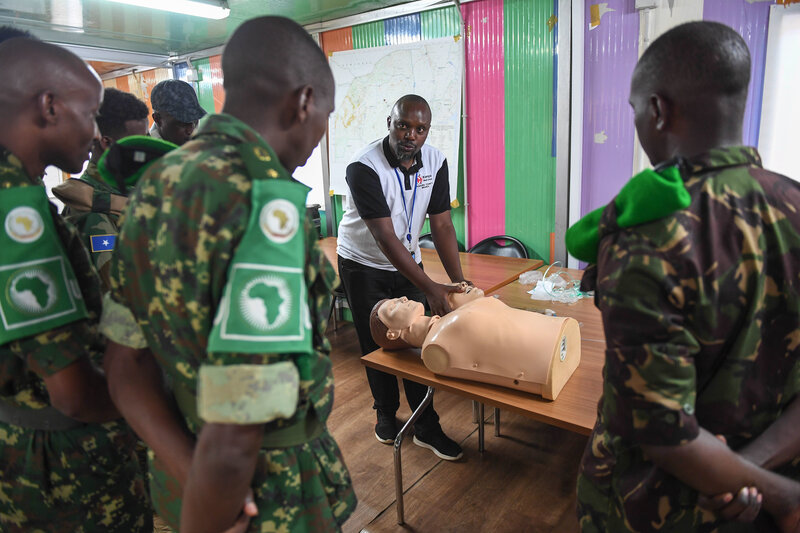
Mr. Fatty added that the training would support the ongoing Somalia transition process and improve ATMIS and SNA's ability to offer robust medical support to their troops involved in military operations in various parts of the country.
According to Dr. Papa Alioune Fall, UNSOS’s Acting Chief Medical Officer, the training was organised to refresh and improve healthcare personnel skills in offering quality health care to save more lives.
“We organised this training to refresh and improve your skills so that when you return to your various duty stations, you will be in a better position to manage casualties according to the best standards,” Dr. Alioune told the trainees.
Medical research shows trauma-related injury is one of the leading causes of mortality and disability worldwide; as a result, patients succumb to potentially preventable trauma-related causes every year, hence the need to reduce death from survivable injuries.
Accredited by the American Heart Association, the training administered by Kenya Red Cross Training Institute instructors oriented the medical professionals on Pre-Hospital Trauma Life Support (PHTLS), Basic Life Support (BLS), and Advanced Cardiac Life Support (ACLS).
“We are here to build the capacity of the healthcare providers to ensure that the quality of services that they offer to the patients and their clients are quality, effective and offered in an efficient manner,” observed Geoffrey Mwai, a Kenya Red Cross Institute trainer. “The bottom line is to learn a skill and save the lives of our clients.”
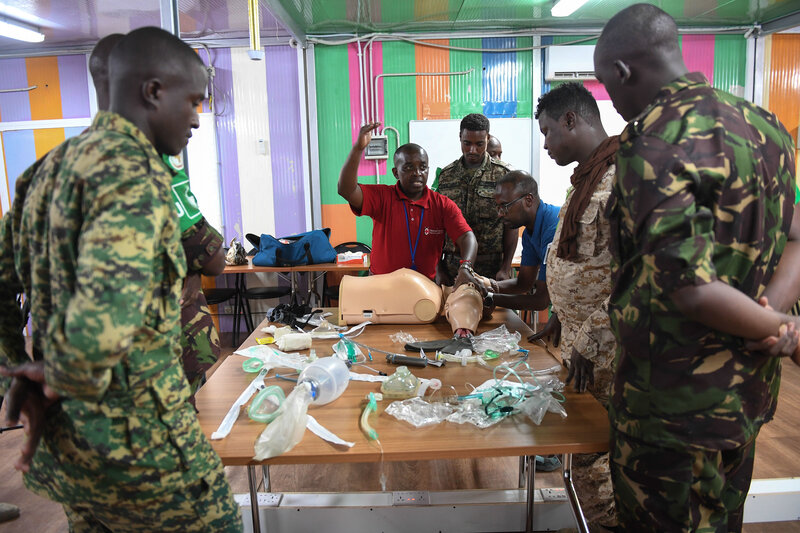
The workshop oriented the medical personnel on the diverse aspects of emergency trauma handling in the peacekeeping Mission including trauma assessment, and patient simulation among others to ensure injured patients are always evacuated to hospitals safely.
The participants were taken through pre-hospital trauma care and cardiopulmonary emergencies which are crucial in medical evacuations.
Another trainer, Sammy Kamanu, noted that PHTLS course would benefit all trainee medics in terms of managing patients before they are rushed to the hospital for proper medical care.
“We are here to equip the participants with all the skills and knowledge that will improve patient care outcomes, especially during emergency responses,” Mr. Kamanu added.
The training benefited diverse groups of medical professionals drawn from the peacekeeping mission, among them nurses, clinical officers, and laboratory technicians.
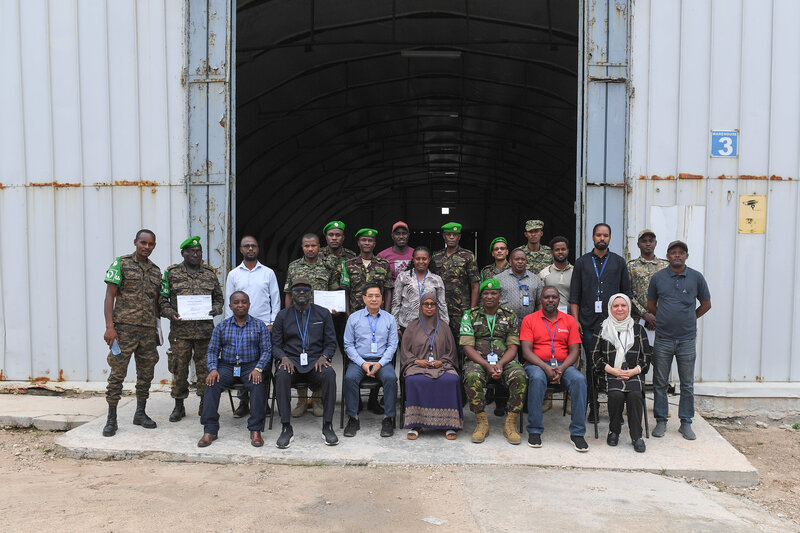
One of the participants, Dr. Fatima Isse, who graduated in 2014 from Ahfad University for Women in Sudan, described the training as useful and insightful.
“This training has given me skills to recognise medical emergencies early and to handle patients properly, particularly on the help that they need,” said Dr. Isse, who serves at UNSOS medical facility in Garowe, northeastern Somalia.
“I plan to share the knowledge and skills gained from the training with my medical colleagues in order to save lives,” another participant, Bukhari Abdullahi, a military nurse at the SNA hospital in Mogadishu.

 UN
UN
